If we said we enjoyed Gwen, we’d be lying, and yet that’s no reflection of the quality of this unsettling drama, which while difficult to enjoy, it’s certainly easy to admire. Coming from debut filmmaker William McGregor, we peer into a dark North Wales landscape amidst the Industrial Revolution, where we meet Gwen, played by Eleanor Worthington-Cox, in what is best described as a folk-horror-coming-of-age-drama. Or something like that. To celebrate the film’s release we sat down with the director and aforementioned leading star, where we discuss the film’s genesis and themes explored, what it was like to collaborate with Maxine Peake, and whether any of us actually know how to bleed a radiator.
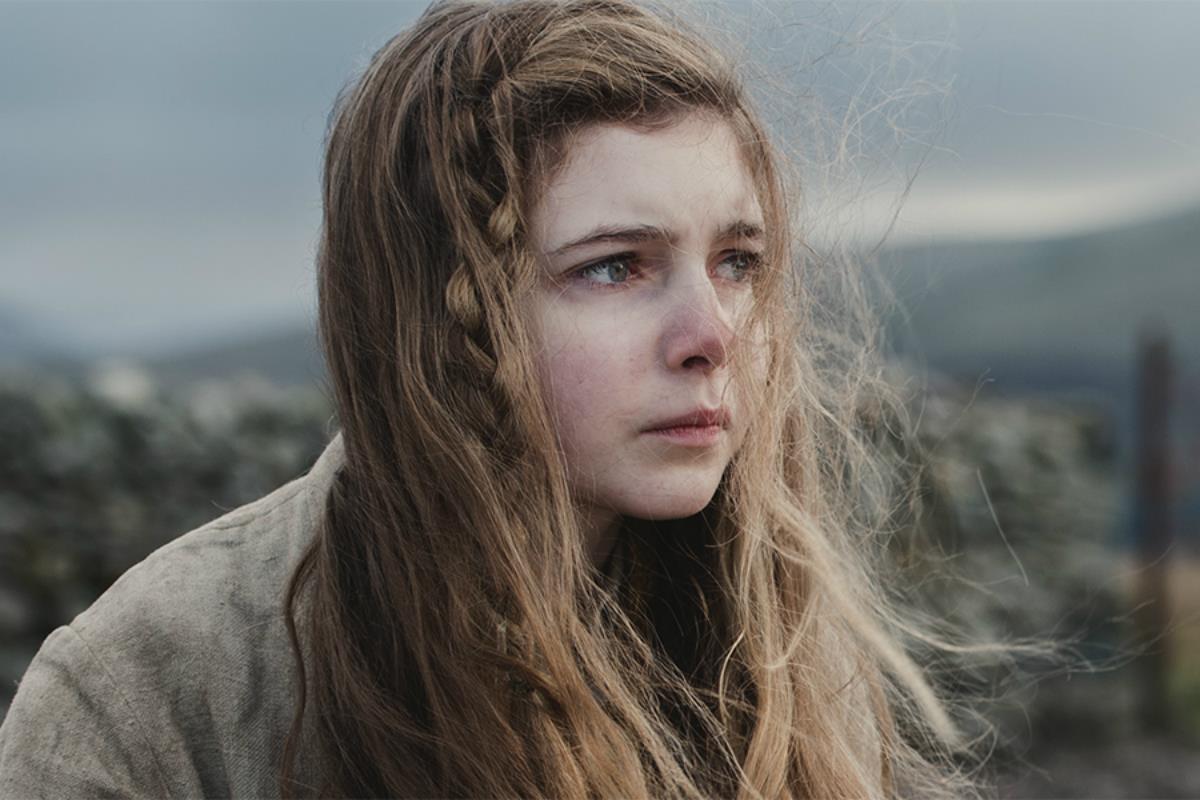
Where did this idea come from, and what compelled you to want to tell it?
William McGregor: So I made a short film called Who’s Afraid of the Water Sprite? as a student in 2008 and it was really a fairytale, a story about a young girl and it was actually a Slovenian fairytale. A producer called Hilary Bevan Jones saw it at a student film festival, she liked the storytelling and asked me if I’d like to collaborate with her and start developing a feature film, and this was in 2009. She’s got a lot of connection with North Wales in terms of family, and Gwen is her fourth production she’s shot in Snowdonia and she suggested that I would really react well to the landscape, this fairytale is very much a folk story from a landscape, so I went off to Snowdonia initially to research and understand the landscape and transpose this fairytale into it. But then it wasn’t just about using the North Wales landscape as a setting for a story, but it actually became the story. And it felt like a place that was slightly neglected and for me this was enraging, and it drifted away from being a fairytale into more a mash-up of a historical Thomas Hardy-esque drama, and also having these folk story beliefs within it as well. It’s not based on one specific piece of history, but its inspired by the history of the Industrial Revolution.
Eleanor when you got the screenplay, did it just feel like one of those characters you couldn’t turn down? She’s such a nuanced, complex character and a great one to get your teeth stuck into.
Eleanor Worthington-Cox: That was definitely the thought process when I got the script through, I was blown away because you don’t see roles like this. I was 16 at the time and you don’t get roles like that for 16 year olds, someone with so much strength but equally layered with vulnerability, and I was immediately attached to the role, I don’t think there was anything I could’ve faulted in it. I was so nervous going in for my first meeting I just remember thinking that I had to do this film, I don’t know what I’d do with myself if I couldn’t. I just felt so incredibly lucky to be a part ofd it really.
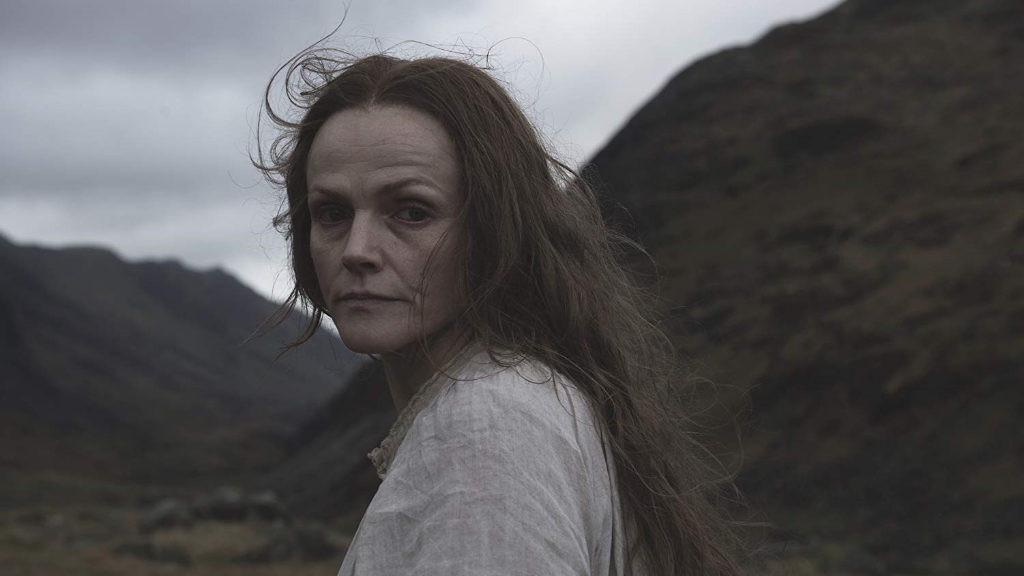
You have to go to some dark places. How was it to shoot? It can’t have been the easiest to switch off from at the end of the day.
EWC: I’ve always felt that in between takes or at the end of the day I’ve always been quite good at leaving work in the office and moving on past it. It is such dark material and its draining if you let it get to you, but if you understand that its your job and that’s the character that you’ve worked very hard to create with a whole creative team then you can seperate yourself from that process so you’re not going home at the end of the day snd thinking, woah, that was rough. Instead you’re thinking that it was a challenging day and I really enjoyed it. And I’m glad I can get warm now, have some sleep and then go back tomorrow and do it all over again.
Given Eleanor is in every single scene almost, it must’ve put pressure on the casting process, particularly as it’s a role intended for a young, inexperienced actress?
WM: The film rests on Eleanor. If that role didn’t work we wouldn’t have a film, but in meeting Eleanor and seeing her at the reading you could tell she was someone who could carry a film. I was 29 at the time and she was 16, but she probably had more experience than I did, with BAFTA nominations, an Olivier Award, this wasn’t just a child actor this was a serious actor with incredible range and ability that we were very lucky to have in the film, because it wouldn’t have worked otherwise.
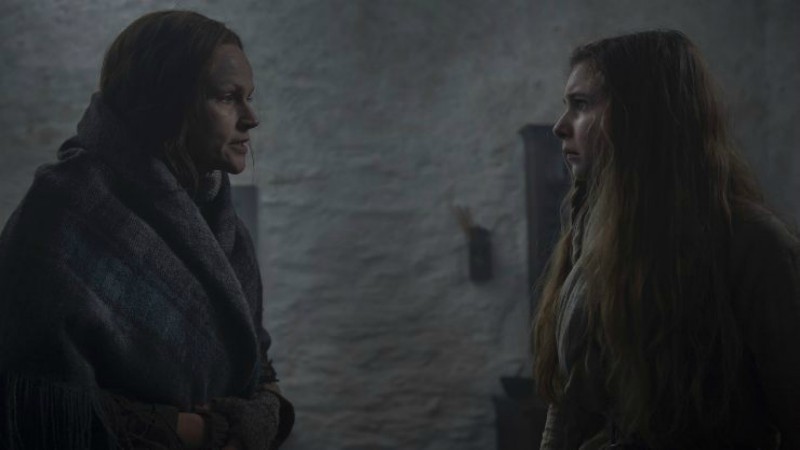
You made this when you were 29? I’m 30 and I still don’t even know how to bleed a radiator.
WM: I don’t know how to bleed a radiator either.
EWC: Neither do I, it’s fine.
I think they should introduce a new subject at school called ‘life skills’ for things like that.
WM: Apparently there is now. They were talking about it on The Jeremy Vine Show, but it was things like how often you change your bedsheets, not how to do taxes.
EWC: It’s important to teach kids that kind of thing so they can deal with real life issues.
I can talk to you about algebra, but not how to pay a gas bill.
EWC: I still haven’t used a single quadratic equation in my life, but a lot of kids my age are confused by what the word mortgage means, or how to open a bank account.
WM: If you were in the Industrial Revolution you’d have to have all these practical skills, like how to farm the land, or you wouldn’t have survived. I’d be terrible without Google Maps.
EWC: Exactly, most people could not exist without the internet, whereas this kid was trying to raise a young child, keep her ill mother in good health, trying to keep the farm in good stead so they could have a steady income, and keep an entire community from battering their door down.
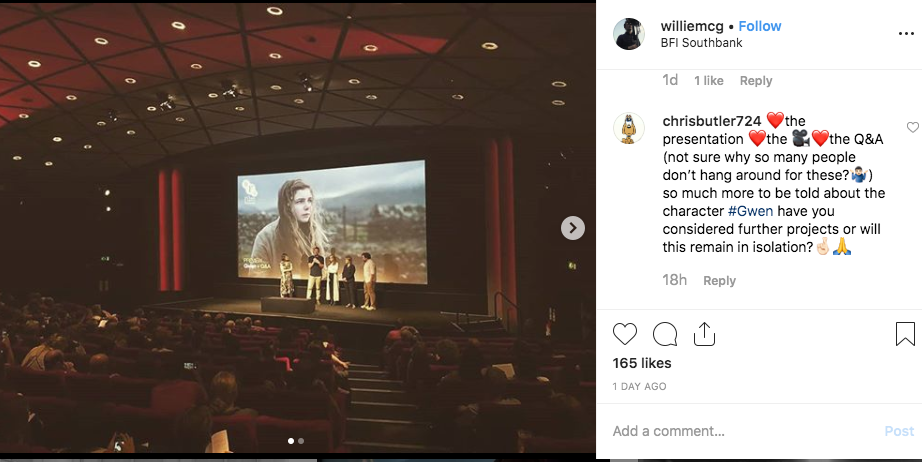
She’d have no time for Instagram.
EWC: Yeah, no time for selfies.
You mention you’ve just left school, is it still surreal to think of yourself as an actress and to see yourself on screen? Has it got normal yet?
EWC: It’s hard because I don’t think I’ll ever be able to eloquently describe what it feels like. The first thought that usually pops into my head is how big is my nostril right now? If I measured my forearm…. Usually my head is the size of a double decker bus and my brain cannot compute that. I kinda take it in my stride but equally all that hard work, all that love and mud that went into the making of this, it’s all there for you to see. I don’t even sit in for the screenings. We’ve been lucky enough to tour around and do some Q&As and I’ve always taken a step back because it makes me feel weirdly detached from my own body watching myself. I can relate to experiences from the day, like the day I got really cold because there was a blizzard at 2am, or that was the day that Jodie got stuck in the mud because her tiny little legs couldn’t get her through, but you don’y sit there thinking that you are that character.
Has it lost its power for you William? It’s such a powerful, dark story and it’s hard not to get emotionally involved. Can you watch it back now and still feel those same emotions or is that impossible now you’ve seen it so many times?
WM: It changes when you watch it with an audience. The film is designed to make you feel uneasy and it’s filled with impending dread that as a director watching it, I’m reacting to the fact that I feel incredibly anxious that I’m watching it with an audience. You know, are people paying attention? I find it quite difficult. Maybe if I made a rom-com I’d find it easier. Even walking out to do a Q&A after the film, everyone has what Eleanor calls ‘Gwen face’.
EWC: Just one full of horror.
WM: You have to make a joke to lighten the mood a bit just to do a Q&A afterwards.
EWC: Doing a Q&A is scarier for me than having to actually perform some of those scenes and actually make the film. I think it’s afterwards when you’re presenting it to people and people have watched your performance.
WM: What is amazing isa you get to connect with people one on one, they come up to you and tell you what your performance means to them.
EWC: It’s so rewarding. Especially when it’s people my age who say that it has impacted them, especially the relationship with her mother, when they can relate to that whole thing of tough lough, and finally realising as you get older and as you come of age that even if you’ve not gone on with your parents in the past, they were only doing it out of love, to protect you and make you fee safe. For somebody to come up to me and say that, that is massively rewarding. That’s the stuff that I’m proud of.
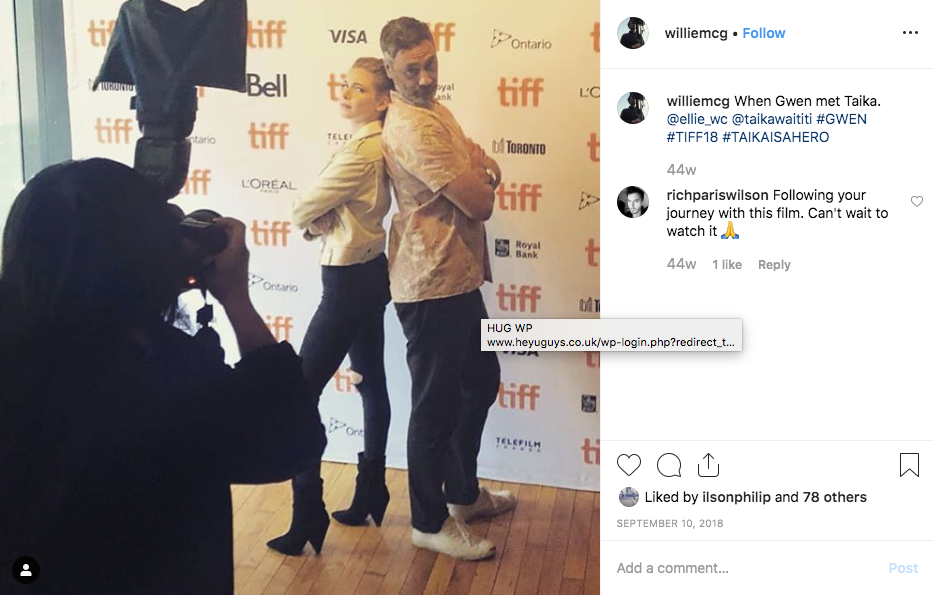
The relationship between Gwen and her mother is a huge part of this film – and explores the notion of getting older and realising your parents fallible, nuanced and they’re complicated. You couldn’t ask for a better person to portray all of those complexities than Maxine Peake. It must’ve been a thrill for both of you to collaborate with her on this?
WM: Yeah, we always had her in mind, and people kept saying’ oh you should really Maxine Peake for this she’d be great’ and we knew she’d be amazing. So we were really lucky that she said to doing it. She could’ve been off somewhere much more exotic earning a lot more money, but she decided to make a project that was in line with her interests and beliefs. Her love of folk as well as her political views really meant that she was a great collaborator for the film. The perfect match really.
EWC: If you’re spending six to eight weeks or something like that.
WM: A five week shoot, but it might’ve felt like eight!
EWC: Even beforehand just being able to meet her and understand that she was everything that I had hoped for her to be, and to look up to her not just as an actor but as a person as well. We were all stood there at all hours of the day in however many layers of skirts, trudging through mud and it’s this incredibly established actor who was just taking it all in her stride and getting on with it, just as everyone else was. She is such an incredible person and honestly I couldn’t have wished to have worked with anybody better.
WM: In the rehearsals we wanted to get Jodie and Maxine to meet, just so Jodie felt comfortable as a six year old girl, and Maxine could be quite scary on set. So we did all this background, getting to meet each other, have fun, do some baking together, and then you’re on set and you think, that was helpful she seems quite calm around Maxine. But then in week three she realised that the lovely blonde lady and the scary dark-haired lady on set were the same person.
She won’t be able to see this film for quite a long time.
WM: She has watched it!
EWC: Her mum and her dad and her sister were with her when they watched it. I’m quite close to the family now because she has a sister my age, and it was really nice to be able to connect with her family like that, because they’re trusting their little one with a crew of people and with really dark material as well, so it was nice that they were there for her. They’re even in the film, Jodie’s dad is in the church scene, it’s just nice to have that.
There’s one scene that frightened me, and I’m not a six year old, when Maxine turns round with scars on her back. In that moment I remember thinking – is this actually a horror movie? Would you define this as a horror?
WM: There’s definite folk horror influences, the Unholy trilogy or even just some of the BBC plays of the day stuff, like Robin Redbreast, and I don’t have an issue with anything being called horror I don’t think it’s a dirty word I think it’s a positive thing, but the only time I am nervous about it is if you sold this film as a horror with a poster like The Conjuring, then the audience come in expecting a horror film, they might be slightly disappointed by it, in a sense that there’s no jump-scares for the first 20 minutes or what have you. I’m happy to embrace it as a folk horror, but you just have to be careful about what expectations you set for an audience. You’re almost better off just thinking it’s a gothic folk story, and then the rest is a surprise.
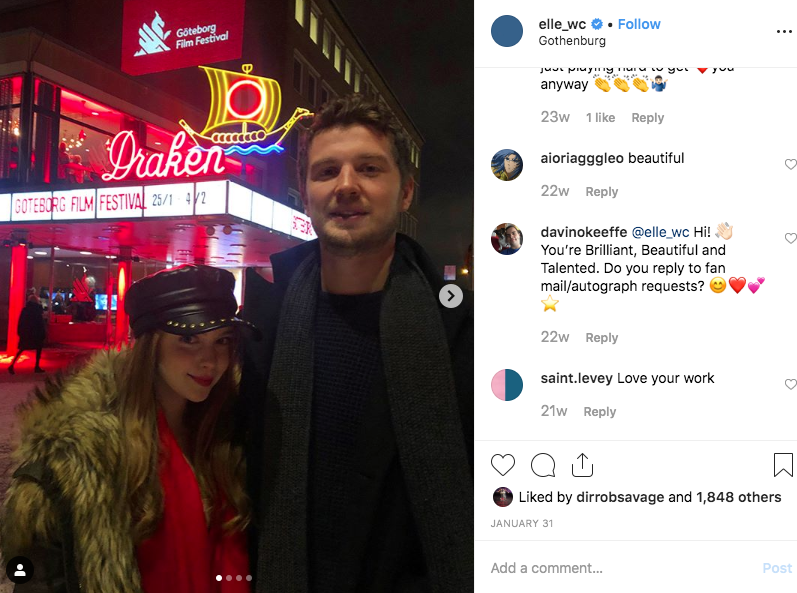
The second you do put a label on it, people do expect a certain kind of experience. Unfortunately though, it does feel like the industry, from distributors and studios who want ten word pitches, to audiences who want ten word tweets, films are often defined by their genre.
WM: It is one of the challenges of this film, of thinking, what is it? I just set out to make a film that I want to see, that is idiosyncratic and different and strange, and cross boundaries into different genres. But then when you come to sell that to an audience, how do you find your film? That is one of the challenges in getting this film out there, the surprise of it is a good thing, but you can’t tell people to just come along and be surprised.
It’s got that sort of rural, British feel. Following from Dark River by Clio Barnard and then God’s Own Country by Francis Lee, what do you think it is about this theme that appeals to filmmakers, stories that are very much focused on how we’re in touch with the land we inhabit.
WM: You write about what you know, and growing up my experiences about landscape and my connection to my landscape, and especially now I feel a detachment to the landscape, and that will find its way not just into people’s film. I think folk horror is having a revival because of that as well, it’s an appealing story.
Eleanor, we met in Toronto and I kept thinking that I recognised you from somewhere but couldn’t put my finger on it. And it’s because I’d recently seen Action Point, and it was such a convincing American teen performance, I couldn’t relate you with the role. It seems in your career you’ve made eclectic choices that seem very different from the next. Are you just following the good stories and characters or are you making a conscious effort to try new things and show off your range as an actress at this stage in your career?
EWC: I think it’s a bit of both, I have always been passionate about playing a huge variety of roles, I never want to limit myself, that would be the worst thing I could d. I enjoy challenging myself and so staying in my comfort zone has just never been an option. I love to push myself and I love to do different things, it’s why I did Action Point which was a very happy-go-lucky comedy set in the 1970s and then I was also doing a film at the same time pretty much where it’s 19ty century very heavy dark material, of a young woman who is basically come-of-age. It’s hard because I wouldn’t say I’ve made a conscious decision to always go against the last role I’ve done but I definitely enjoy playing characters that I can respect in some way, so if I think they’re a good example not just for little girls, just any person, if any one can look to that character and see someone they wish they could’ve been, or want to look up to, then I feel like I’ve done my job. Even if its in a comedy or in something like Gwen, I need to feel connected to that character, so it’s all just about the story for me.
What’s coming up next for you both?
EWC: Britannia series 2 is coming out this Autumn, so I’m really excited about that, I can’t wait for people to see it.
WM: I’m working on a project called Gun Dog which is a kind of revenge thriller set around the blood sport of badger baiting, so another very broad, funny subject matter. But I’m currently doing a small stint on His Dark Materials, which is a book I loved as a teenager, so I’m bringing to life a character I read in 2002 or something like that, so that feels like a very privilege,


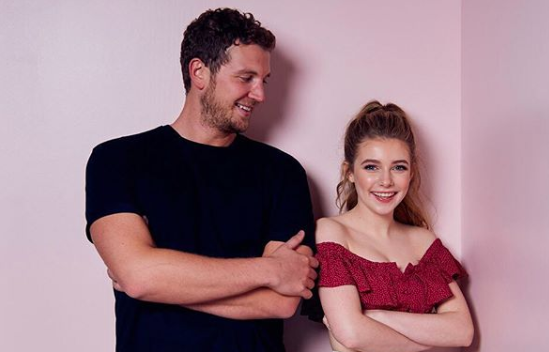

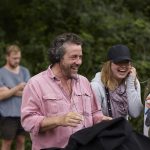
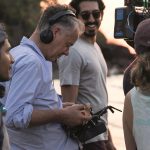



Leave a Comment